Kula Eco Park
We visited Kula Eco Park with our parents last week. Kula Eco Park is named for Fiji’s brightly colored rainforest bird also known as the Collared Lory, and it focuses on the preservation and protection of Fiji’s wildlife. The 28-acre park is located in the Sigatoka area on Viti Levu, between Nadi and Suva.
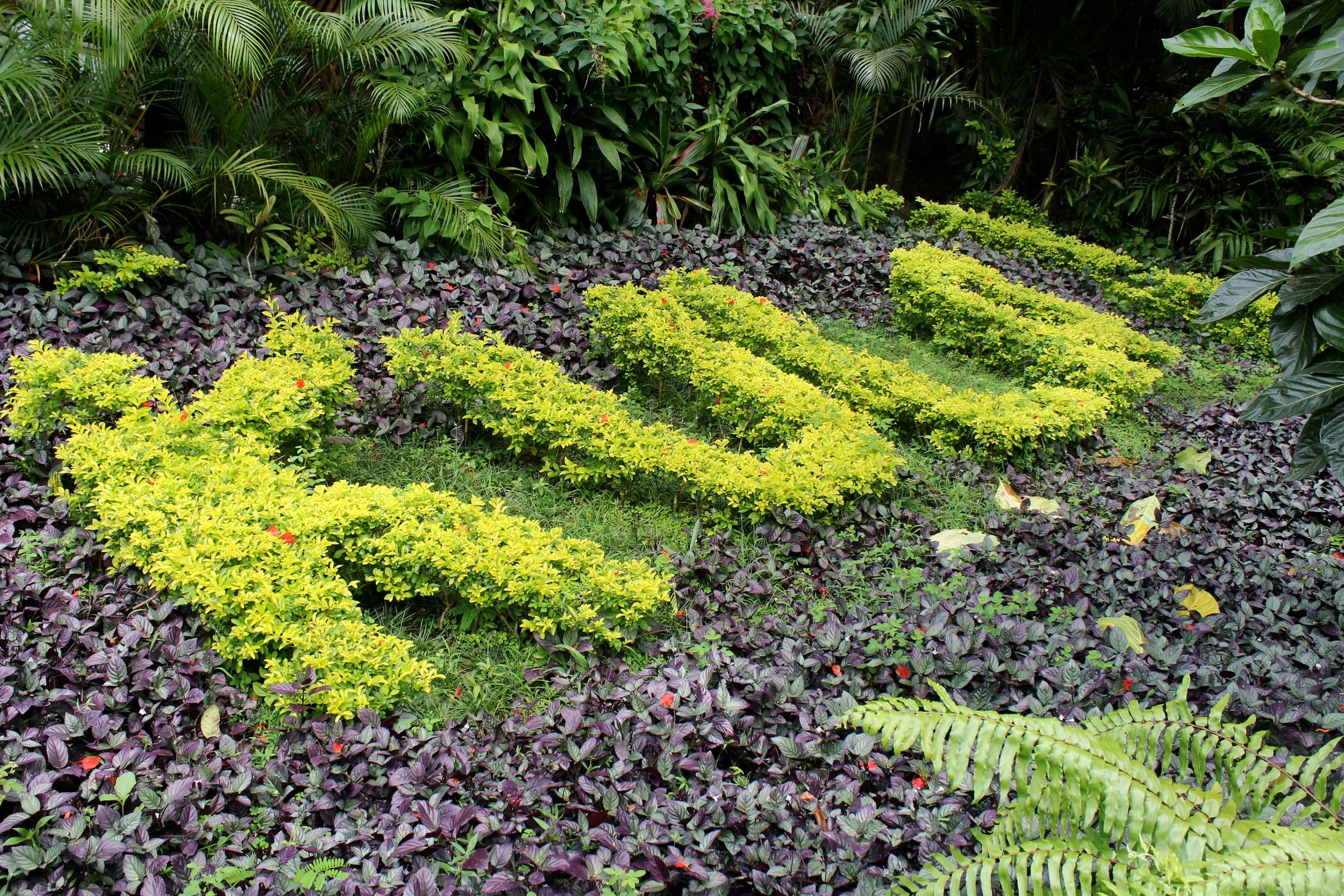
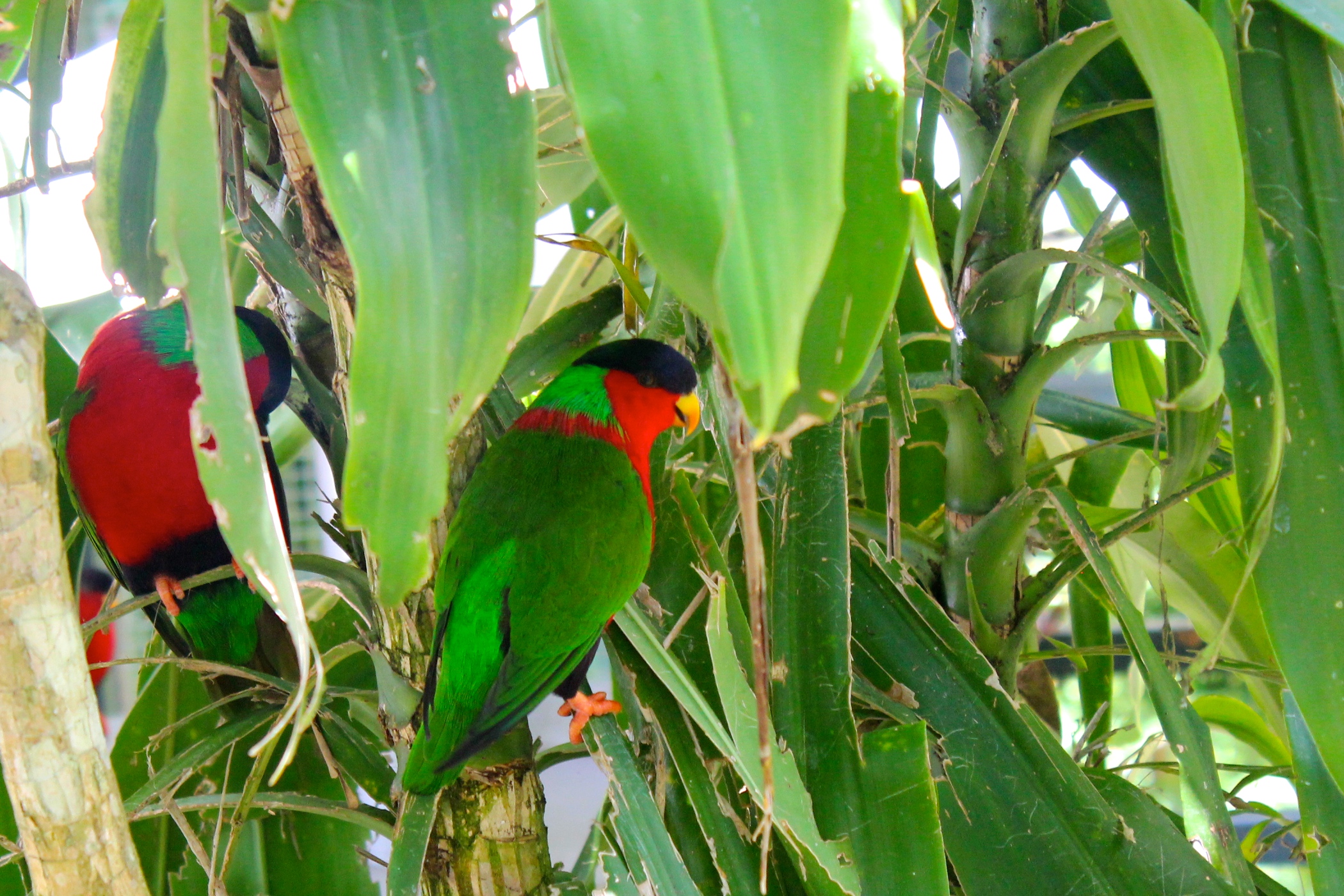 They offer self-guided tours daily, and guided tours are available with advanced booking. We enjoyed taking our time with the self-guided option through the picturesque coastal forest. The admission cost of $30 FJD per person is the sole source of funding for the park, and it also allows free environmental education for visiting school children.
They offer self-guided tours daily, and guided tours are available with advanced booking. We enjoyed taking our time with the self-guided option through the picturesque coastal forest. The admission cost of $30 FJD per person is the sole source of funding for the park, and it also allows free environmental education for visiting school children.
Kula Eco Park is the only captive breeding facility in Fiji for endangered indigenous species. They have focused on breeding Fiji's Peregrine Falcon, Fiji's Yadua Taba Crested Iguana, Fiji's Ground Frog, and Fiji's newly discovered Monoriki Crested Iguana. Their program aims to breed and release healthy populations back into their natural environment.
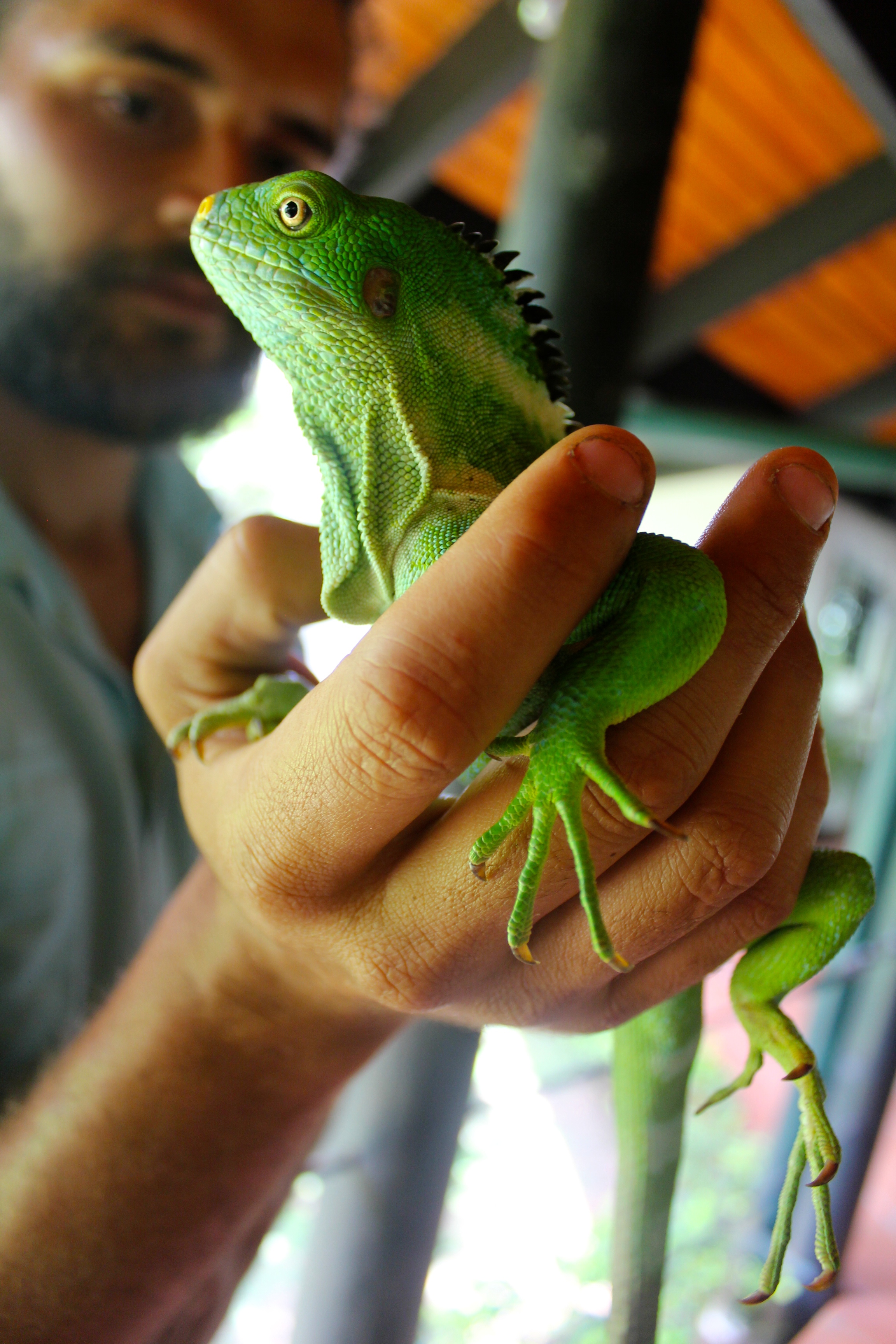
Kula Eco Park also has a Wild Rescue Rehabilitation Program, through which they house injured, sick, orphaned, or smuggled animals, including those who cannot be released back to the wild.
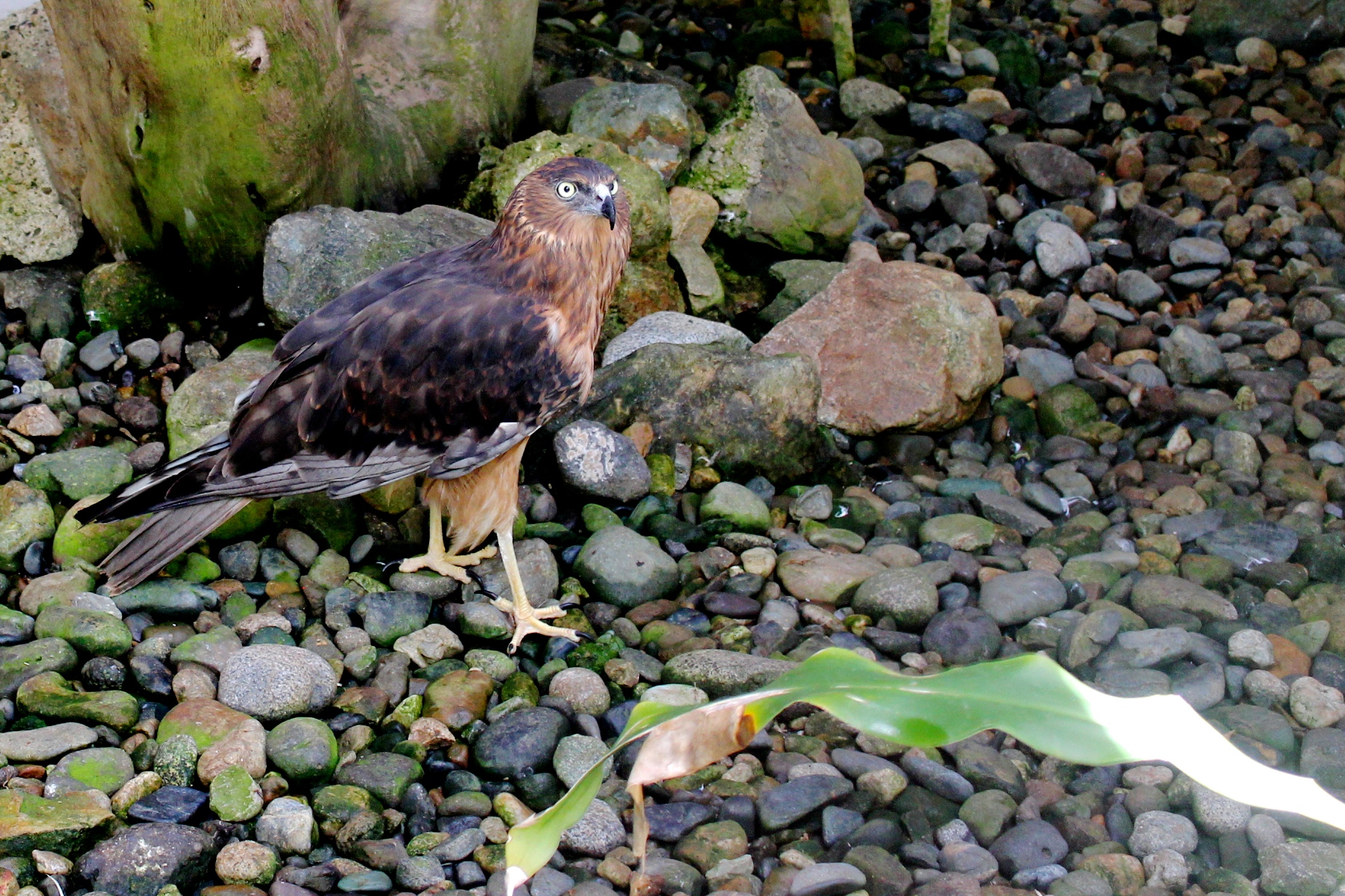
When we visited, there were staff members who showed and provided information on the Fijian Crested iguanas and Pacific boas. They explained the Fijian Crested Iguana lays her eggs and then leaves them unguarded in the forest soil for 7 to 9 months, opening them up to introduced predators. At Kula Bird Park, they have been successfully breeding the iguanas to release them on sanctuary islands.
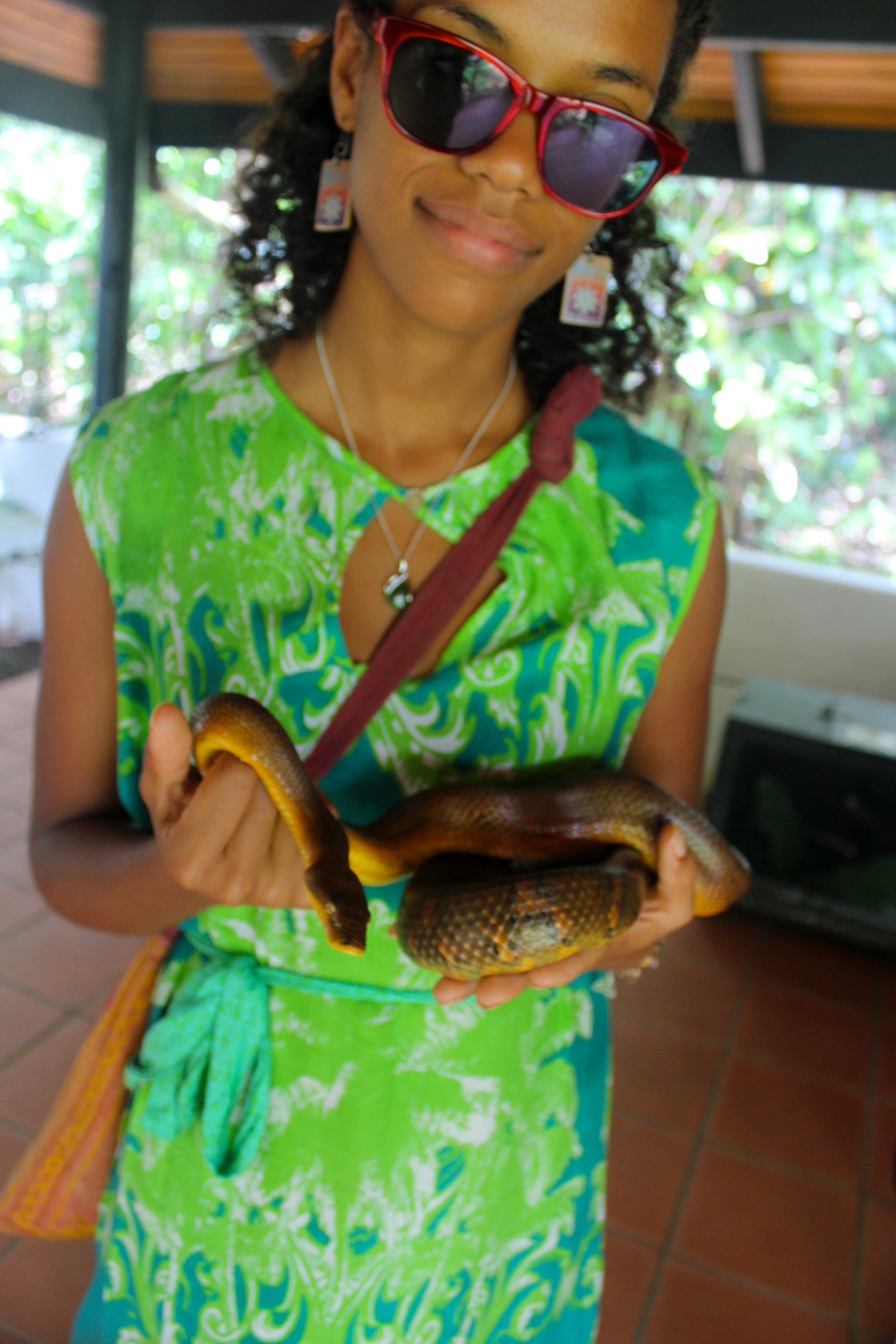
Fiji’s natural balance has been upset by a number of introduced species. The mongoose was introduced to Fiji to control the non-native rats. However, with no natural predators, the mongooses have taken over Viti Levu and Vanua Levu, causing the extinction or severe decline of native ground-nesting birds and reptile populations. The Cane Toad was introduced to manage insects, and it can now be found in large populations throughout the Fiji islands.
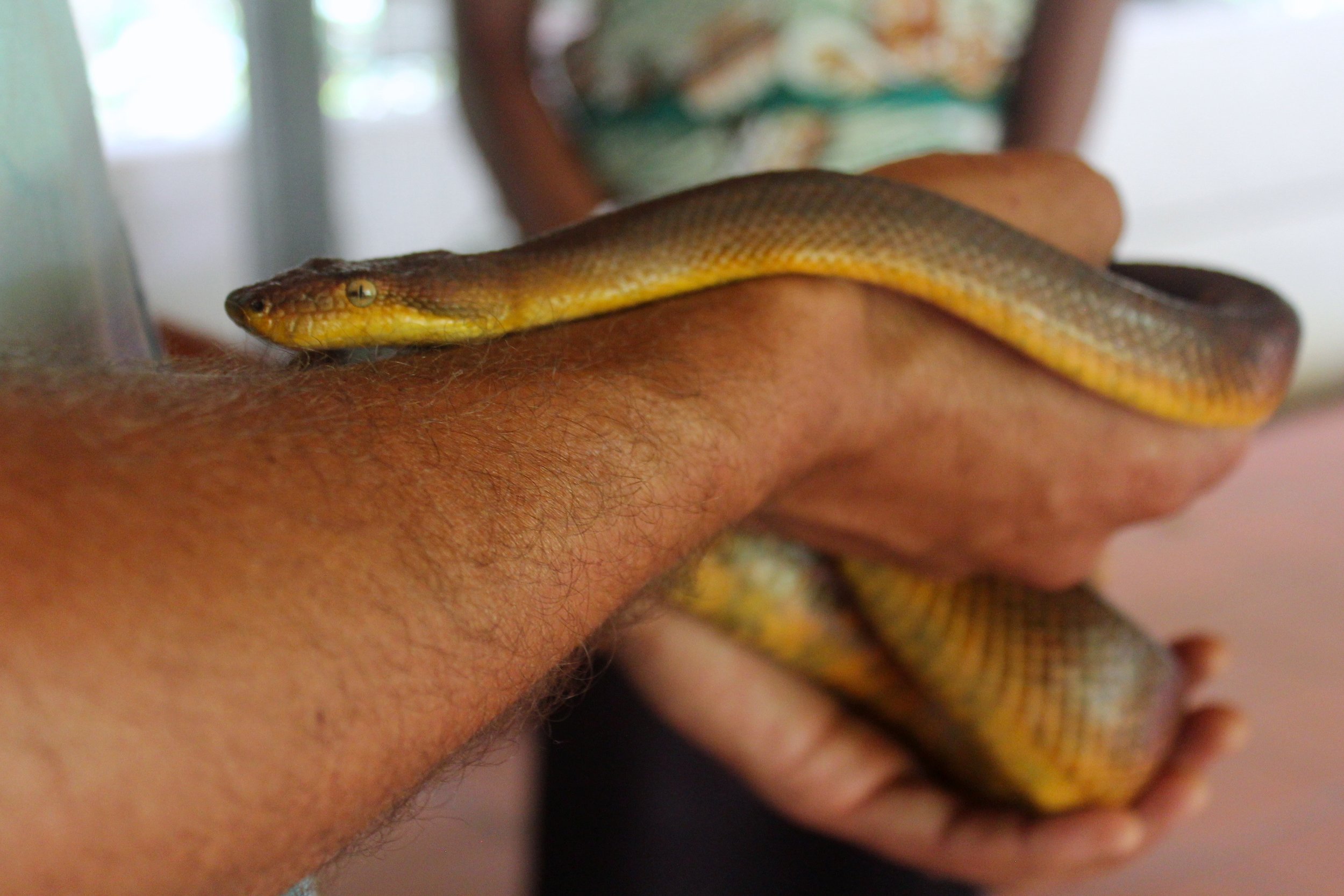
The park features cockatoos, hawks, falcons, and fruit bats. The fruit bat, also called the flying fox, is only indigenous terrestial mammal in Fiji, and it is one of our personal favorites. While at the park, we learned that unlike insect bats, they rely on their sense of smell and excellent vision. Our perspective on bats completely changed after we looked after an orphaned baby bat on Taveuni. He was like a flying puppy- incredibly social and affectionate. The bats Kula Eco park are older, but very social and interested in meeting everyone who passes by.
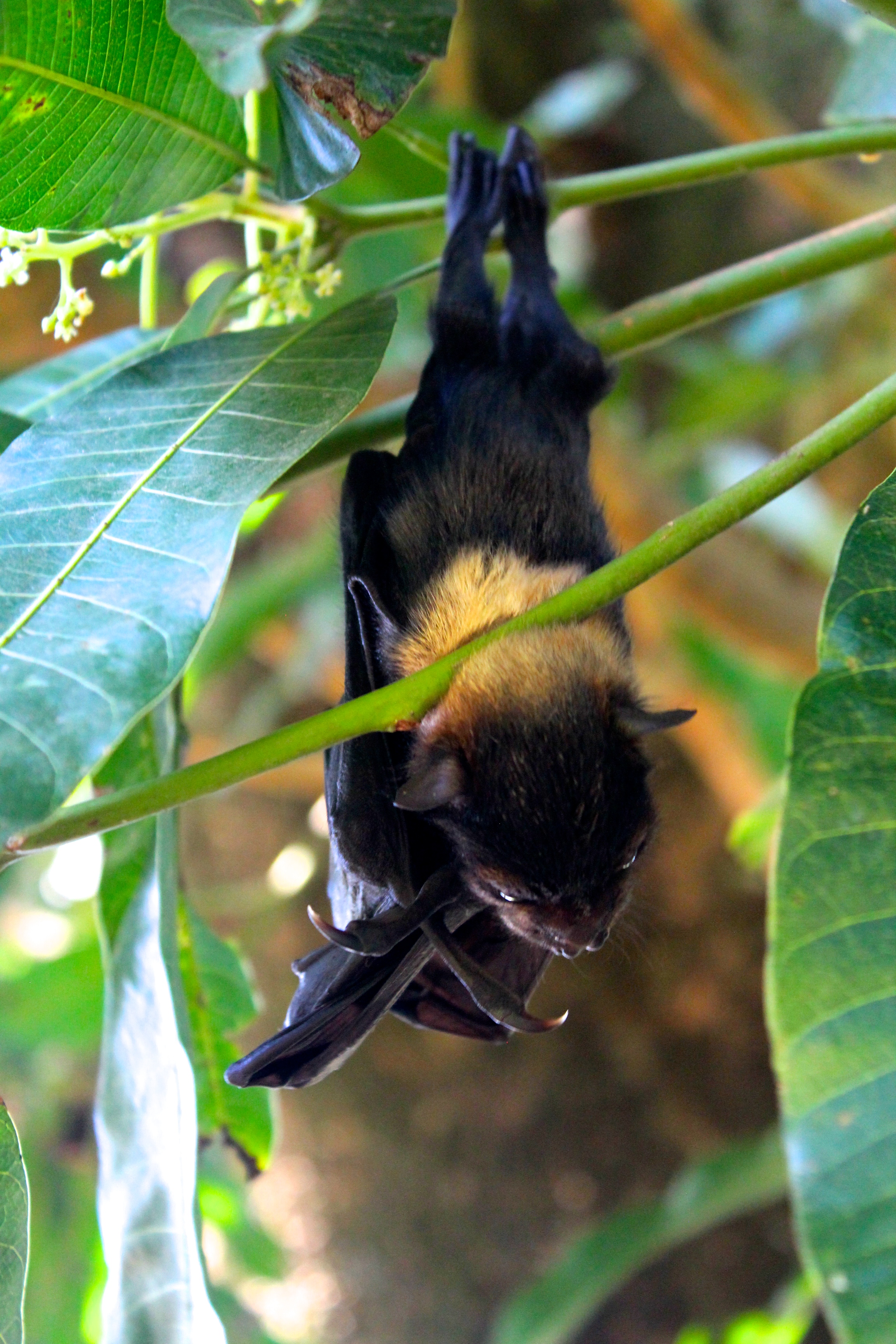
The musk parrots, kula birds and a few others are in large enclosures that visitors can walk through. They also have a marine area of soft coral and reef fish. They have a couple of Hawksbill Sea Turtles who will be released into the wild in the near future.
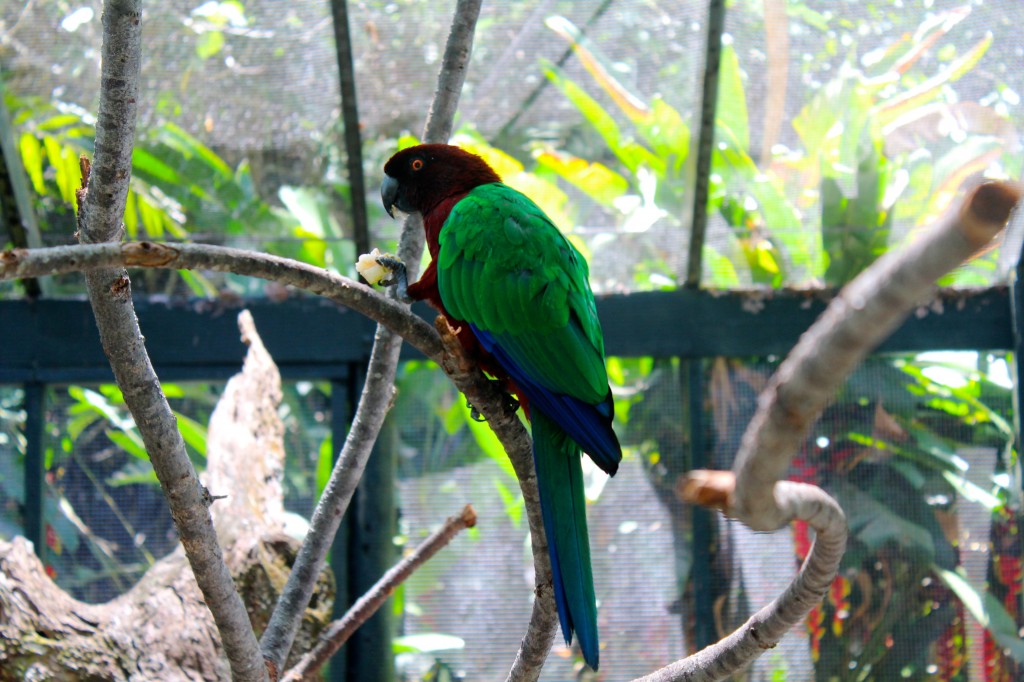
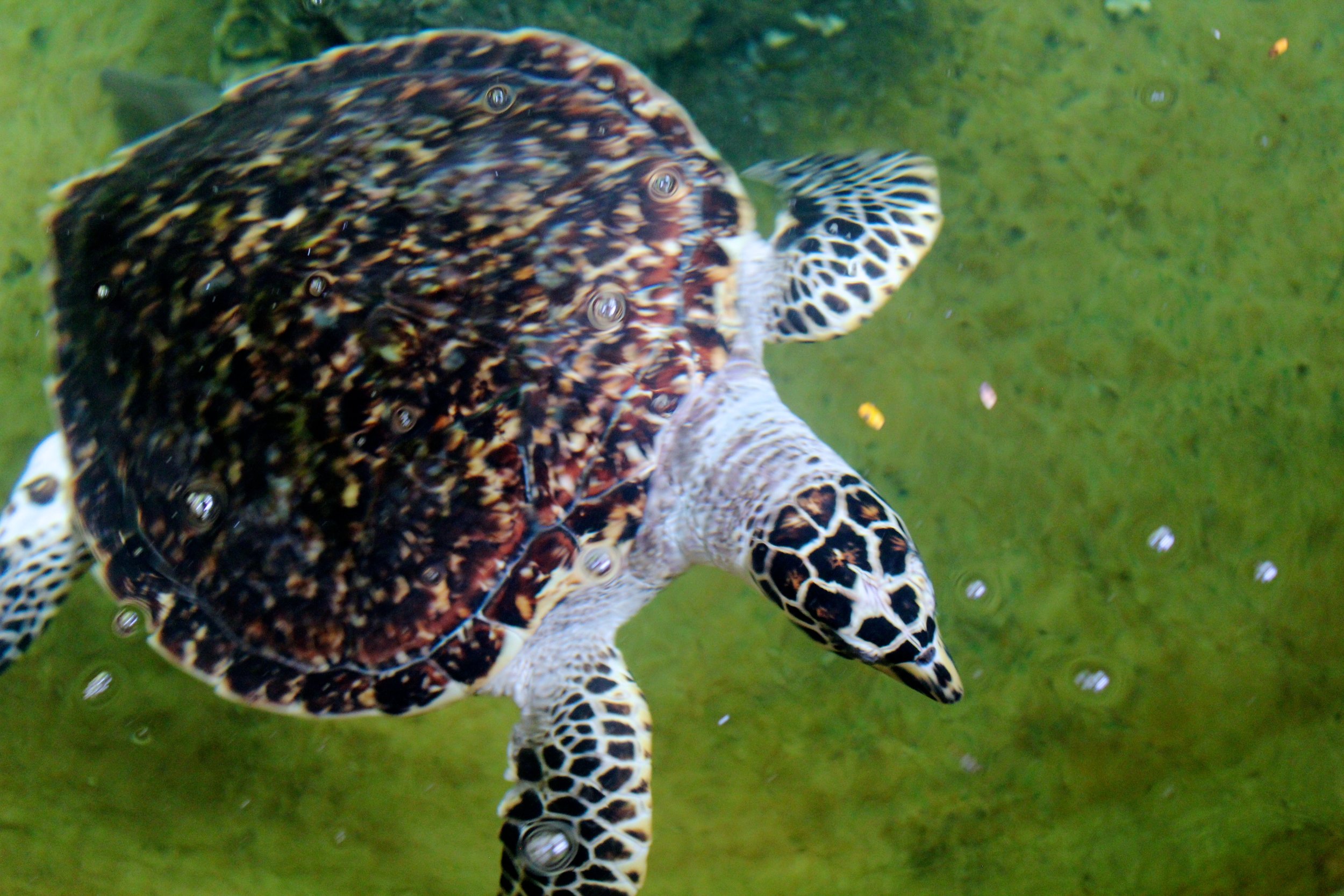
Throughout the park, there is signage with information on the plants and animals. Many signs tell how the individual animals came to Kula and their plans for release into their natural environment. Kula Eco Park has also created a traditional medicine display based on the information in Dr. M A Weiner, Ph.D’s book “Secrets of Fijian Medicine.” They have 12 native plants on display, with plaques identifying their medicinal uses.
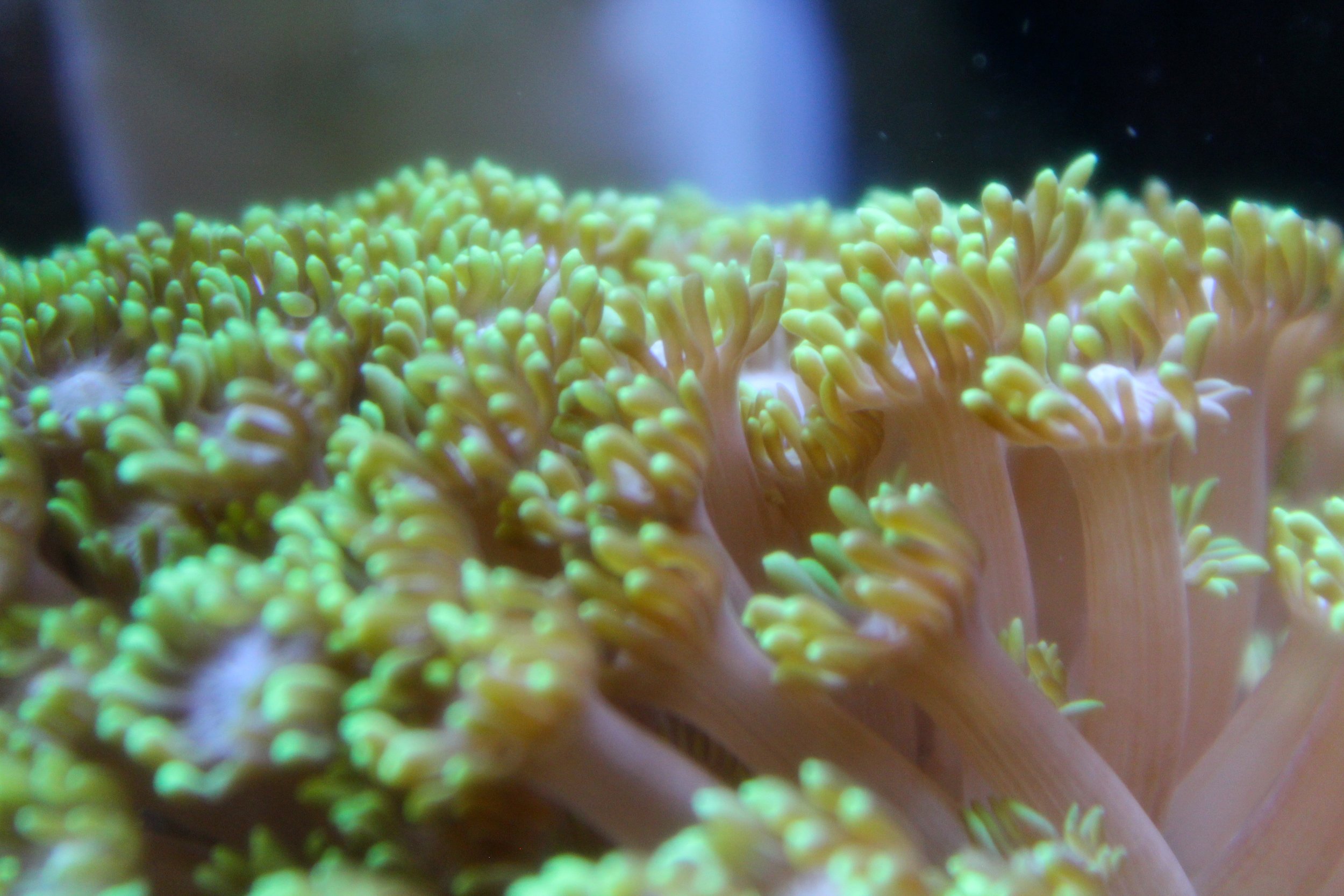
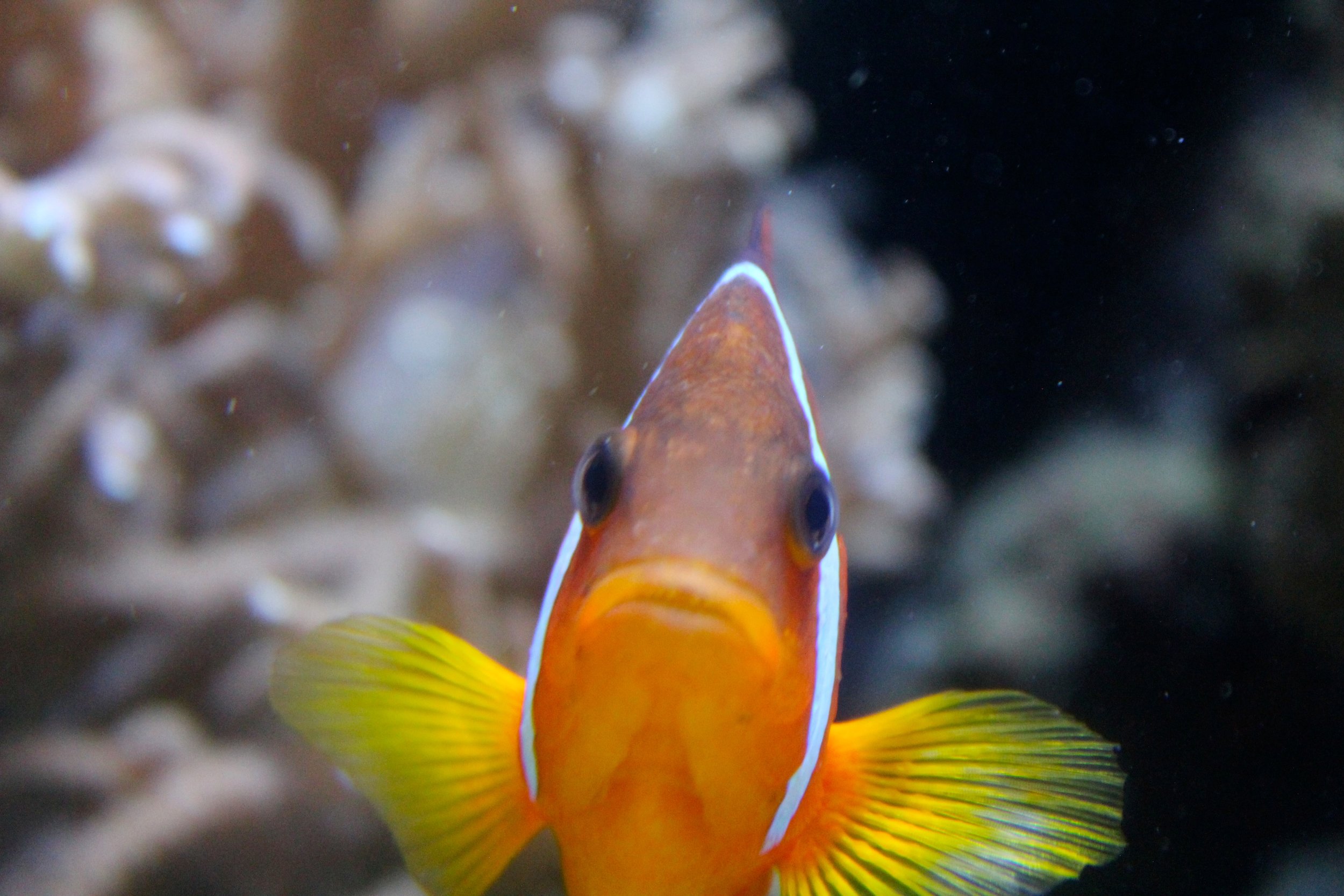
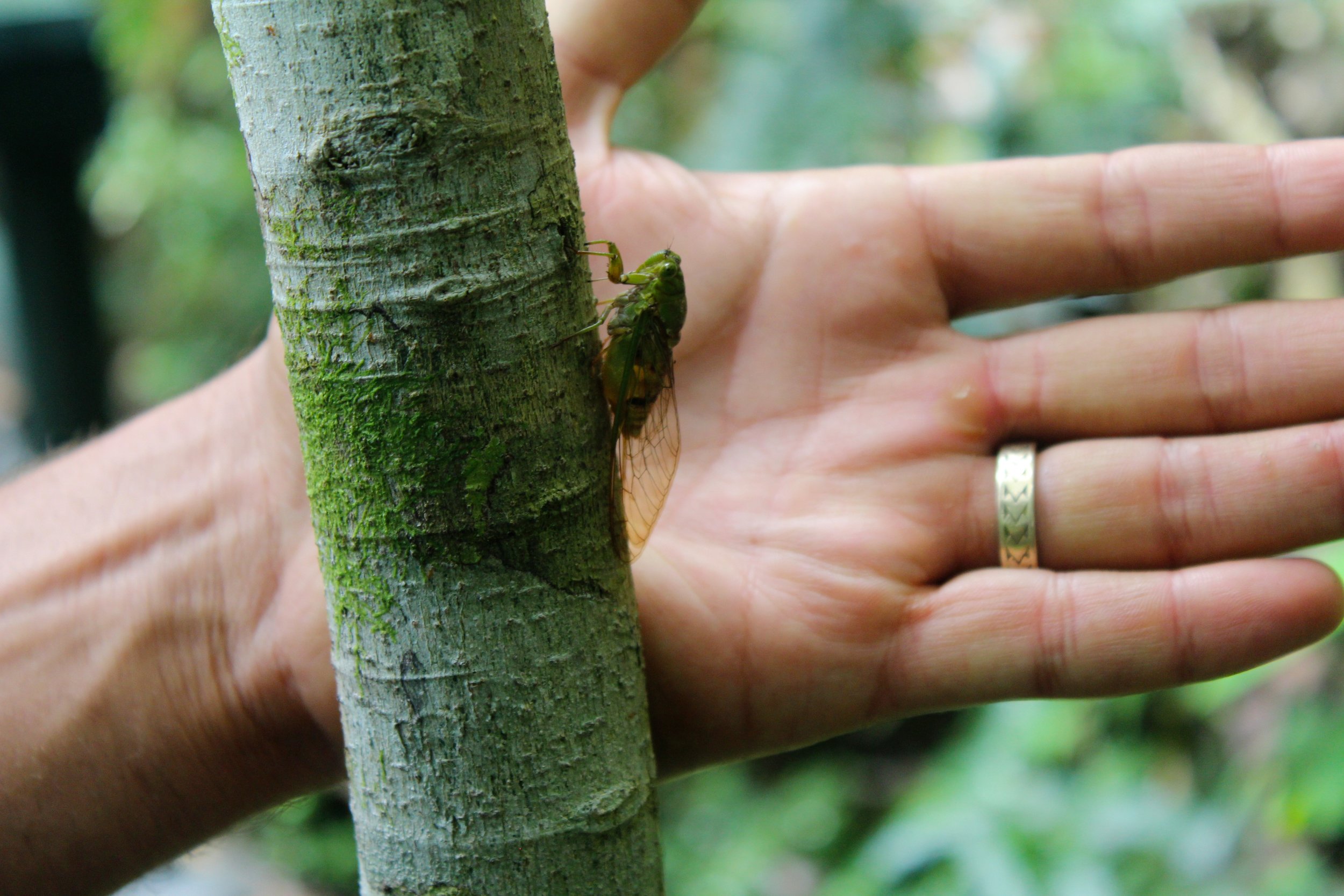
We highly recommend visiting Kula Eco Park and supporting their efforts. The park is open from 10am to 4:30pm 7 days a week, and is only closed on Christmas Day and New Years Day. Read more about the park on their website or on Fiji's tourism website.
